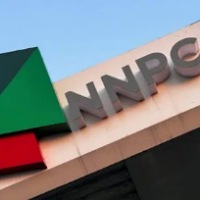Gas
Nigeria LNG’s train 7 to yields $2.5b in revenues

…3,000th Cargo to arrive Turkey Jan 19
By Joseph BAMIDELE
LAGOS – Nigeria Liquefied Natural Gas, NLNG, train seven (7) when completed is expected to generate an estimated $2.5 billion revenue and potentially capable of mopping up and exporting some more of the currently flared gas.
In addition to the sixth train, the seventh train will enable NLNG add some eight million metric tonnes to its current production capacity, and increase annual output to 30 million metric tonnes.
Meanwhile, Nigeria LNG said it has successfully recorded the loading of its 3,000th cargo for export, a commendable milestone that is worthy of celebration.
Chief Executive/Managing Director of Nigeria LNG Limited, Babs Omotowa said
added to this feat is the fact that this historic 3000th LNG cargo will be delivered, come January 19 2014, to BOTAS in Turkey by one of our company’s vessels, the LNG Lokoja.
 He explained that the vessel is manned by a workforce which is about 95 per cent Nigerian, in line with the company’s aggressive pursuit of technology transfer and Local Content policy.
He explained that the vessel is manned by a workforce which is about 95 per cent Nigerian, in line with the company’s aggressive pursuit of technology transfer and Local Content policy.
He stressed that Nigeria LNG (NLNG) has helped the national effort to diversify the country’s revenue base and aided the monetization of its abundant natural gas resources, hitherto flared as associated gas during crude oil exploitation.
Incorporated in 1989, Omotowa said has NLNG evolved as a consortium with NNPC, Shell, Elf, and Agip as shareholders.
According to him “with a net worth of more than $24 billion dollars, Nigeria LNG Limited remains the single biggest private sector investment in Sub-Saharan Africa.
“We are proud to note that the investment, since the commencement of full operations in 1999, generated over $53 billion dollars to its shareholders within the first ten years. The Federal Government also earned more than nine billion dollars as dividends, during the period.
“Before the commencement of operations, 75% of the 2.6 billion cubic feet of associated gas produced by oil companies operating in Nigeria was flared.
“This trend has changed. Nigeria LNG Limited currently converts over four trillion cubic feet of associated gas to liquefied natural gas (LNG) and natural gas liquids (NGLs) for both export and domestic uses.
“In doing this, the company has positively impacted on the country’s gas flaring status, thereby helping to improve the environment whilst converting a previously wasted resource into wealth for the nation.
“Nigeria LNG has today successfully recorded the loading of its 3,000th cargo for export, a commendable milestone that is worthy of celebration.
“Added to this feat is the fact that this historic 3000th LNG cargo will be delivered, come January 19 2014, to BOTAS in Turkey by one of our company’s vessels, the LNG Lokoja.
“We believe it must not go un-noticed that this vessel is manned by a workforce which is about 95% Nigerian, in line with our aggressive pursuit of technology transfer and our Nigerianization policy.
“Part of the next phase of our company’s growth programme is the addition of a seventh train to the existing six train NLNG infrastructure. When achieved, this will enable NLNG add some eight million metric tonnes to its current production capacity, and increase annual output to 30 million metric tonnes.
“This is potentially capable of mopping up and exporting some more of the currently flared gas, and yielding an estimated $2.5 billion in revenues.
“On balance, it is clear to us at NLNG that Train 7 is an enterprise which all shareholders and stakeholders should support and pursue with vigour, for the simple reason that its outcome will be good for Nigeria and good for our business,” he said.
Gas
Platform Petroleum targets a billion-dollar investment

Announces ambitious expansion plans
Platform Petroleum says the company is targeting a billion-dollar investment as it announces an ambitious strategic plan to bring 3 marginal fields into production by 2025, with a target of 10,000 barrels of oil and at least 50 billion standard cubic feet of gas per day.
Speaking on the sidelines of the 2024 Offshore Technology Conference (OTC) in Houston, USA, Chief Dumo Lulu-Briggs, Chairman of Platform Petroleum said that the company has scheduled a roadshow in London this June 2024 to raise extra funding to finance their ambitious expansion plans.
“The upcoming roadshow aims to attract equity partners and prepare for future opportunities, targeting a billion-dollar investment. We are seeking partners ready to invest in Nigeria’s oil and gas potential.
Our goal is to showcase the country’s vast opportunities and its potential to international investors” Lulu-Briggs said.
Platform Petroleum’s roadshow in London will highlight the company’s efficient production, upgraded flow stations, increased capacity, and achievements in nearly zero emissions.
With about one percent gas flare currently, Platform aims for zero gas flares by the last quarter.
“Nigeria is a vast market, and Platform Petroleum is thinking big. With the government’s ambitious plans, such as the Lagos-Calabar coastal line, Platform is poised for growth; pushing itself to the next level, building on a strong foundation and following Seplat’s successful precedent”, Lulu-Briggs said.
Despite being a small company, he emphasized that Platform Petroleum has demonstrated significant success and efficiency, showcasing that smaller oil and gas entities can indeed achieve remarkable feats adding that he believes that the company deserves recognition and more assets.
“Platform Petroleum is ambitious, aspiring to become a tier-1 company akin to international oil companies (IOCs) or a tier-2 company like Seplat. Interestingly, Seplat originated from Maurel & Prom, Shebah Petroleum, and Platform Petroleum, and today stands as a major player in the industry.
This history underlines Platform’s potential for substantial growth”, Lulu-Briggs said.
Furthermore, the Platform Petroleum Chairman said that the Offshore Technology Conference (OTC) is a crucial event for promoting Nigeria’s significant market potential.
“Partnering with the Petroleum Technology Association of Nigeria (PETAN) at OTC is key to attracting investment. The current proactive government understands the necessity for economic growth, and Platform is prepared to leverage every opportunity in the oil and gas industry to contribute to this expansion”, he concluded.
Breaking News
NNPC JV Unveils New Crude Oil Grade ‘Nembe’, Commences Exports With 1,900 Barrels

Precious ADELOLA
The NNPC/Aiteo Joint venture has announced the introduction of Nembe Crude Oil Grade, a new crude oil grade into the international crude oil market.
The announcement of the Nembe Crude Oil Blend, produced by Aiteo, the Operator of the NNPC/Aiteo Oil Mining Lease (OML) 29 Joint Venture (JV), was made at the ongoing Argus European Crude Conference in London, on Tuesday.
OML 29, an asset located onshore Nigeria, is operated by Aiteo Eastern Exploration & Production Ltd, Africa’s leading indigenous hydrocarbon producer, following a historic acquisition from Shell in 2014.
The Nembe Crude was previously blended with the popular Bonny Light grade and exported via the Bonny Oil & Gas Terminal.
The unique selling point of the Nembe Crude Oil grade with an API gravity was highlighted by both the Aiteo E & P and NNPC Limited Leadership at the Argus Conference in London.
The Nembe Crude Oil grade also has a low sulphur content and low carbon footprint due to flare gas elimination, fitting perfectly into the required spec of major buyers in Europe.
Two cargoes of 950,000 barrels each of the Nembe Crude Oil grade have since been exported to France and the Netherlands. With its attractive Assay of API 29 and low sulphur content, the Nembe Crude Oil grade commands a premium to the global Brent benchmark.
With the NNPC-Aiteo OML 29 JV back on-stream, Nigeria now boasts of an additional crude oil export of 2 Cargoes at 950,000 barrels each per month and 1.2 Bcf of export gas monthly.
This remarkable achievement signals the commencement of activities at Nigeria’s newest crude oil terminal, the Nembe Crude Oil Export Terminal (NCOET), which was licensed in line with the extant laws and Crude Oil Terminal establishment regulations.
The terminal was conceived as a Floating Storage and Offloading Vessel (FSO) with a storage capacity of two (2) Million Barrels and the ability to offload crude oil to any export tanker from AFRAMAX to Very Large Crude Carriers (VLCC).
It has a loading capacity of 25,000 barrels per hour and will be exporting over 3.6 million barrels of Crude oil monthly at full scale of operation.
Currently, hydrocarbon production from OML 29, which was hitherto constrained due to evacuation challenges owing to the security issues around the Nembe Creek Trunk Line (NCTL) corridor, has now been resolved through a collaborative and creative approach that led to the innovation of the Alternative Crude Oil Evacuation Solution.
The Argus European Crude Conference 2023 in London is a gathering of energy majors, refiners, NOCs, traders, financial institutions, and other representatives from across the global oil markets. The event also provides a critical opportunity for business leaders to connect, discuss, share and learn from one another.
Business
NNPCL, NCDMB, Oil Majors Agree Improved Efficiencies

Modupe Asudo
Major players in the oil and gas sector in Nigeria led by the Nigerian National Petroleum Company Limited (NNPCL) have covenanted to optimise operations by reducing contracting cycle to not more than 180 days.
A statement issued by the company disclosed that the Memorandum of Understanding (MoU) to this effect was endorced on Monday in Abuja at the company’s head office.
Other parties to the the contract include, the Nigerian Content Development and Monitoring Board, (NCDMB) and international oil companies.
Biztellers reports that an optimised contracting cycle was expected to improve the ease of doing business, reduce cost and drive efficiency, which would eventually translate to production growth, increased revenues, and ultimately improved profitability.
In addition, the MoU was expected to contribute significantly to the double-digit economic growth rate agenda of the Federal Government and generate value for all stakeholders, including investors, companies, host communities and Nigeria.
Notable elements in the framework of the MoU, going by the statement, included a reduction of the contracting cycle for open competitive tender, selective tender, and single sourcing tender to 180, 178, and 128 working days respectively.
This was in contrast with the current best effort performance of 327, 333, and 185 working days respectively.
According to Group Chief Executive Officer, NNPCL, Mele Kyari, signing the agreement portends exciting times for Nigeria’s oil and gas industry, in addition to standing as a bold testimony that the company was plunging into the future of hope, productivity and success.
Kyari, represented at the occasion by Executive Vice President, Upstream, NNPCL, Oritsemeyiwa Eyesan, pointed out that with oil and gas as the bedrock of Nigeria’s economy, there was need to get the contracting process in the Industry right so as to get the economy back on track.
In his remarks, Executive Secretary, NCDMB, Simbi Wabote, described the MoU as a way forward and a critical step towards enhancing the nation’s crude oil production.














